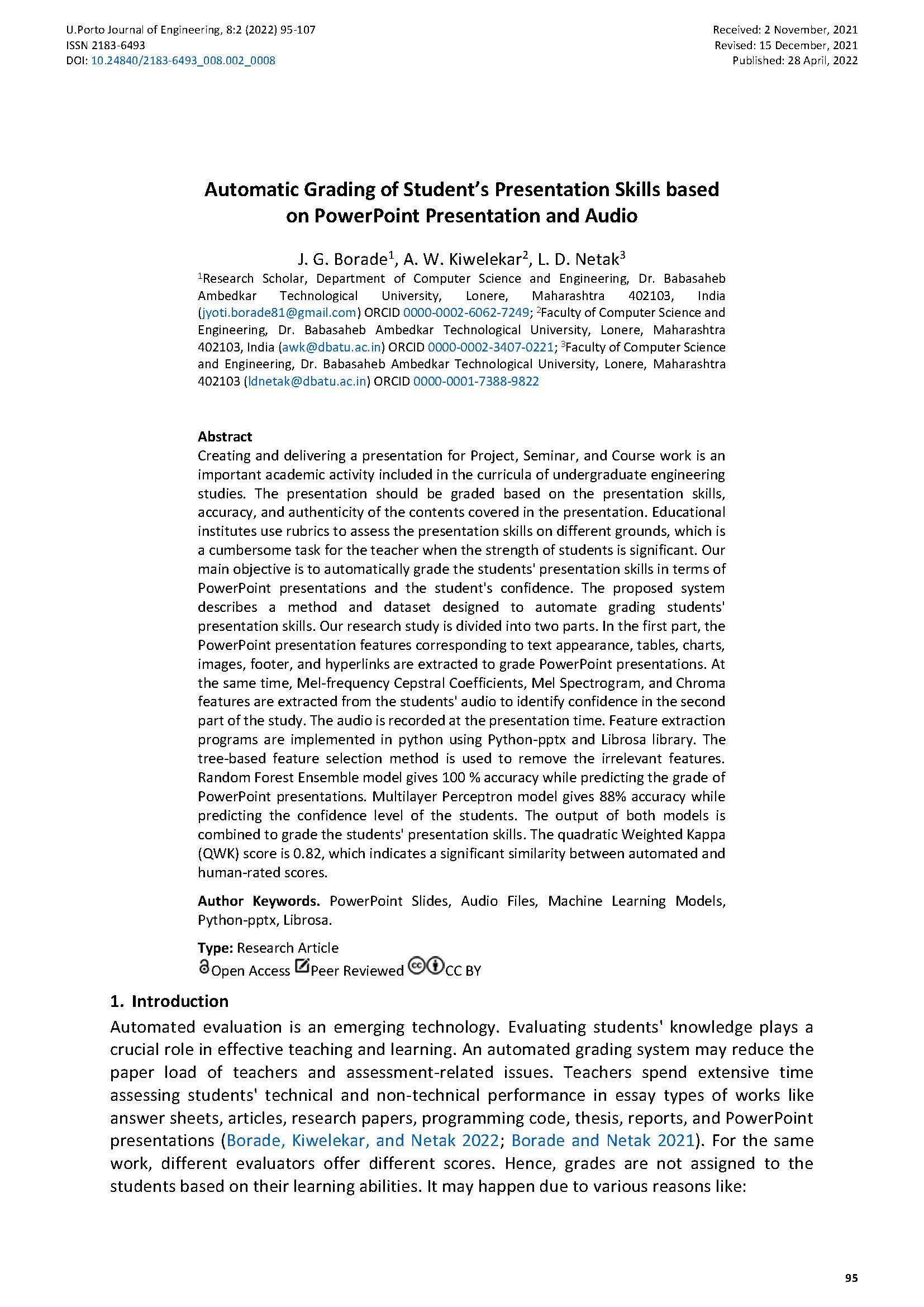Automatic Grading of Student’s Presentation Skills based on PowerPoint Presentation and Audio
Main Article Content
Abstract
Creating and delivering a presentation for Project, Seminar, and Course work is an important academic activity included in the curricula of undergraduate engineering studies. The presentation should be graded based on the presentation skills, accuracy, and authenticity of the contents covered in the presentation. Educational institutes use rubrics to assess the presentation skills on different grounds, which is a cumbersome task for the teacher when the strength of students is significant. Our main objective is to automatically grade the students' presentation skills in terms of PowerPoint presentations and the student's confidence. The proposed system describes a method and dataset designed to automate grading students' presentation skills. Our research study is divided into two parts. In the first part, the PowerPoint presentation features corresponding to text appearance, tables, charts, images, footer, and hyperlinks are extracted to grade PowerPoint presentations. At the same time, Mel-frequency Cepstral Coefficients, Mel Spectrogram, and Chroma features are extracted from the students' audio to identify confidence in the second part of the study. The audio is recorded at the presentation time. Feature extraction programs are implemented in python using Python-pptx and Librosa library. The tree-based feature selection method is used to remove the irrelevant features. Random Forest Ensemble model gives 100 % accuracy while predicting the grade of PowerPoint presentations. Multilayer Perceptron model gives 88% accuracy while predicting the confidence level of the students. The output of both models is combined to grade the students' presentation skills. The quadratic Weighted Kappa (QWK) score is 0.82, which indicates a significant similarity between automated and human-rated scores.
Downloads
Article Details

This work is licensed under a Creative Commons Attribution 4.0 International License.
Authors who publish with this journal agree to the following terms:
- Authors retain copyright and grant the journal right of first publication with the work simultaneously licensed under a Creative Commons Attribution License that allows others to share the work with an acknowledgement of the work's authorship and initial publication in this journal.
- Authors grant the journal the rights to provide the article in all forms and media so the article can be used on the latest technology even after publication and ensure its long-term preservation.
- Authors are able to enter into separate, additional contractual arrangements for the non-exclusive distribution of the journal's published version of the work (e.g., post it to an institutional repository or publish it in a book), with an acknowledgement of its initial publication in this journal.
- Authors are permitted and encouraged to post their work online (e.g., in institutional repositories or on their website) prior to and during the submission process, as it can lead to productive exchanges, as well as earlier and greater citation of published work (See The Effect of Open Access).

